A tribute to Dieter Kutzborski, the master who is no more
The great German chess composer Dieter Kutzborski passed away on 27th April 2019 at the age of 72. He was one of the foremost specialists of modern directmates in the style of Logical-New German school, whose productions have brought countless hours of joy to many a problem enthusiasts. The author himself has been an ardent admirer of his works. His problems, especially the longer ones, are simply sensational; their strategic richness and adventurous play can for sure captivate any solver no matter how strong. Photo: SSZ 1968 and Euro Schach
The specialist of modern directmates Dieter Kutzborski
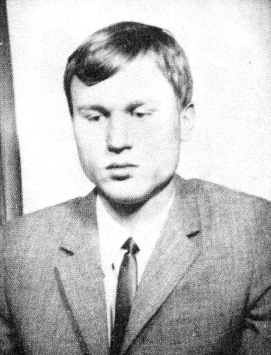
Born on 6th June 1947 in Berlin, Kutzborski learnt the game of chess at the age of 12. In the beginning it was mainly because of the lack of partners who would be willing to play with him that he delved more in the chess problems section of the daily press. But this solitary curiosity quickly blossomed into a genuine passion when at 14, confined in a hospital, he read Kraemer-Zepler's famous problem collection "Im Banne des Schachproblems".
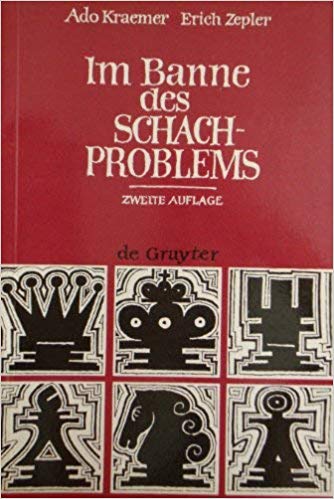
At 16 he started using his pocket money to become a regular subscriber of the German magazine "Deutsche Schachzeitung" which furthered his knowledge of problem theory.

Soon after this he began composing on his own, his style influenced by another brilliant strategic composer Erich Anselm Brunner. But initially he was reluctant to publish anything at all and it was not until 1964, after he got introduced to other members of the composition community in Berlin and became a regular member of their monthly meetings, that he felt comfortable presenting his work to the greater public. Herbert Grasemann tells in his book "Schach ohne Partner für Könner" (Chess without a partner, for experts) about how Berlin problemists met him for the first time; this very interesting account was translated into English by Daniel Maxwell and can be read here.

Nevertheless, Kutzborski remained averse to titles and accolades all his life. He refused to submit his problems to the FIDE albums and therefore was never conferred with any FIDE titles of composing. This might be a reason why he is less well known outside what is only a small circle of chess composers. He was not interested in fame but solely in his art and at that he was a master in his own right who will, for sure, live on through his immortal creations.
I will now quote some of my favourite problems composed by him. Please do work through them, I promise the labour would not be fruitless.
Problem 1
Dieter Kutzborski, Memorial Graseman 1988, 1st Prize
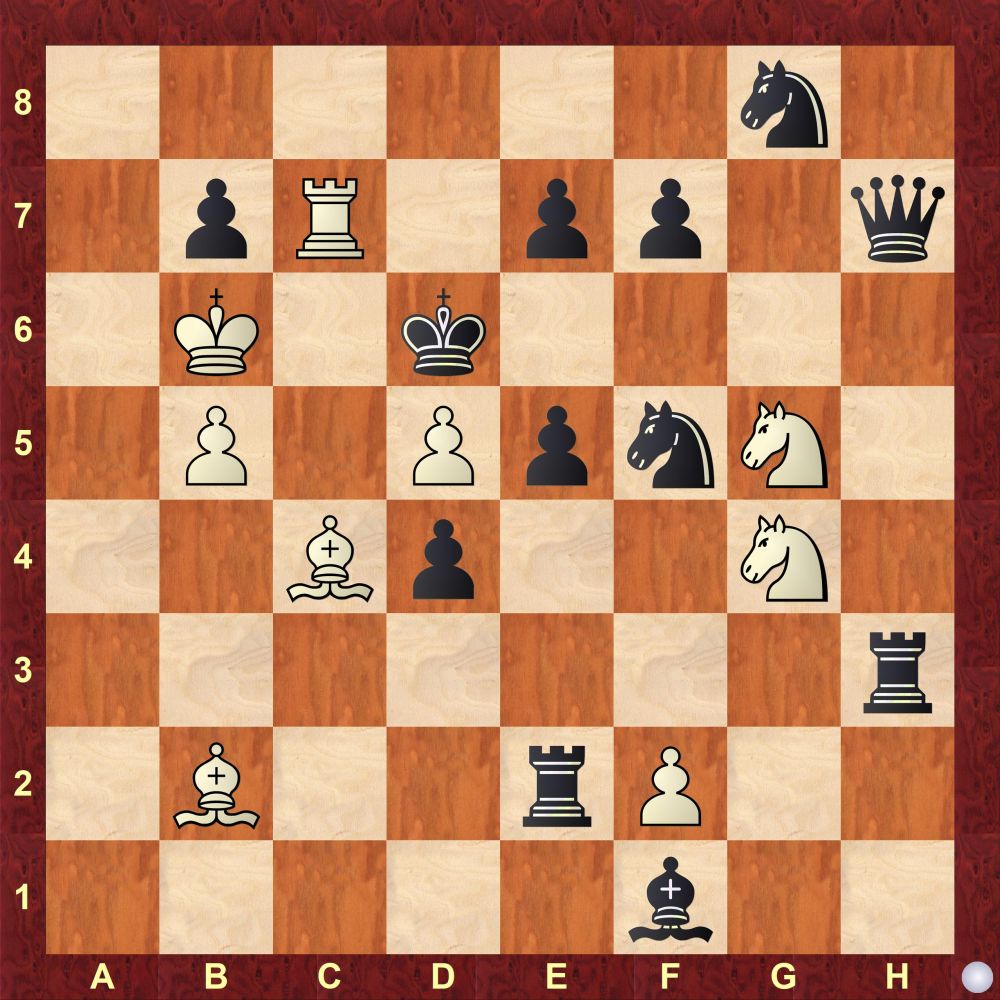
FEN: 6n1/1pR1pp1q/1K1k4/1P1PpnN1/2Bp2N1/7r/1B2rP2/5b2 w - - 0 1
This is a masterwork on the so called Wurzburg-Plachutta interference theme. The key, 1. Ne3! (a Plachutta sacrifice) demonstrates the theme. Notice how capturing the knight en prise on e3 creates fatal mutual interferences: 1...Rhxe3 2.Ne4+ Rxe4 3.Ba3#; 1...Rexe3 2.Ba3+ Rxa3 3.Ne4# and of course, 1...Nxe3/dxe3 runs into 2.Ba3#. Therefore 1...e4 is the optimal continuation for Black, giving some room to the king. The mainline continues with 2.f4! exf3 (e.p) 3.Ng4 (threat: 4.Ba3#) 3...f2 4.Bc1! (threat: 5.Bf4#) 4...e5
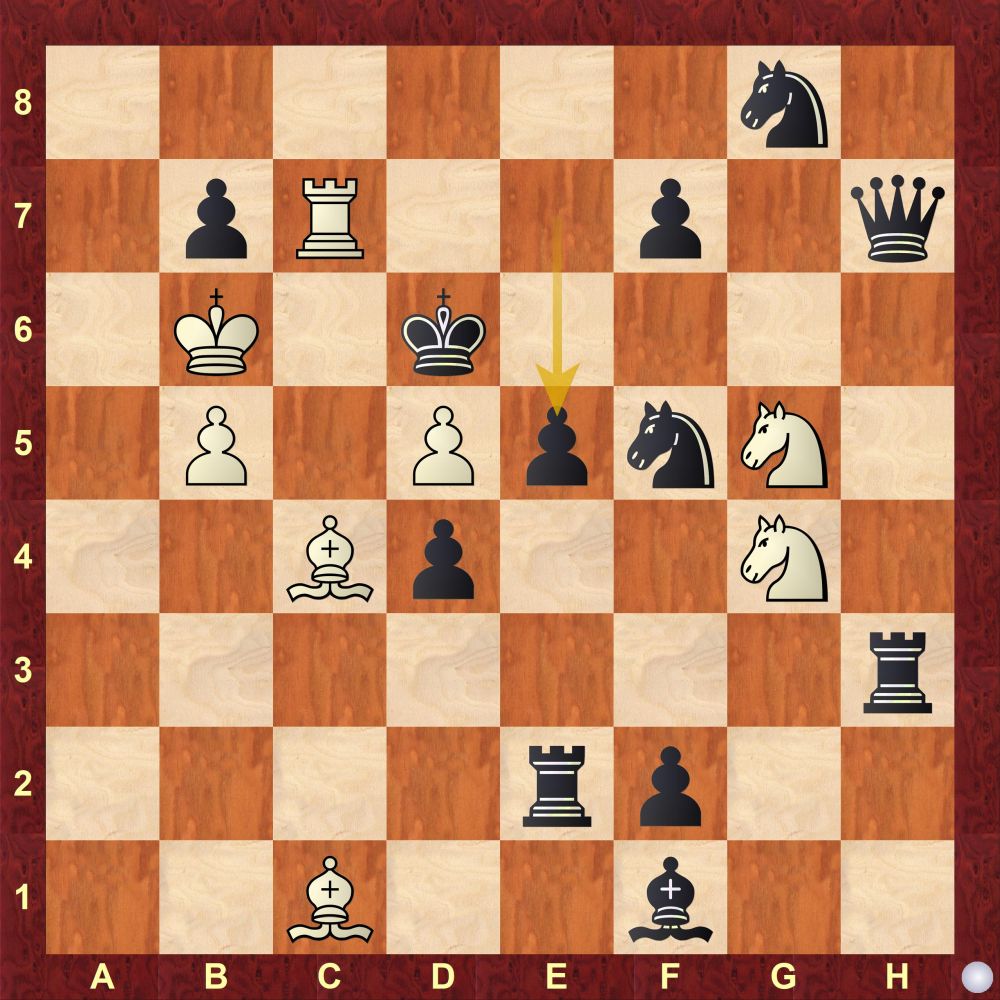
5.Ne3! (a second plachutta) 5...e4 6.Ng4 and now there is no defense against a simple a mate-in-2. Why? 6...Qg7 7.Bf4+ Qe5 8.Nxf7#; 6...Rf3 7.Bd2! threatens 8.Bb4# and Black can't defend both f4 & b4; 6...Rhe3 7.Nxe4+ Rxe4 8.Ba3#; 6...Ree3 7.Ba3+ Rxa3 8.Nxe4#; and of course 6...Ne3 is lame, simply runs into 7.Ba3# Watch how the wNg4 performs stunning switchbacks (g4 to e3) twice, this is many layers of concealed logic unfurling through exciting play - a typical Kutzborski masterpiece!
Problem 2
Dieter Kutzborski, Schweizerische Schachzeitung 1974, 1st Prize
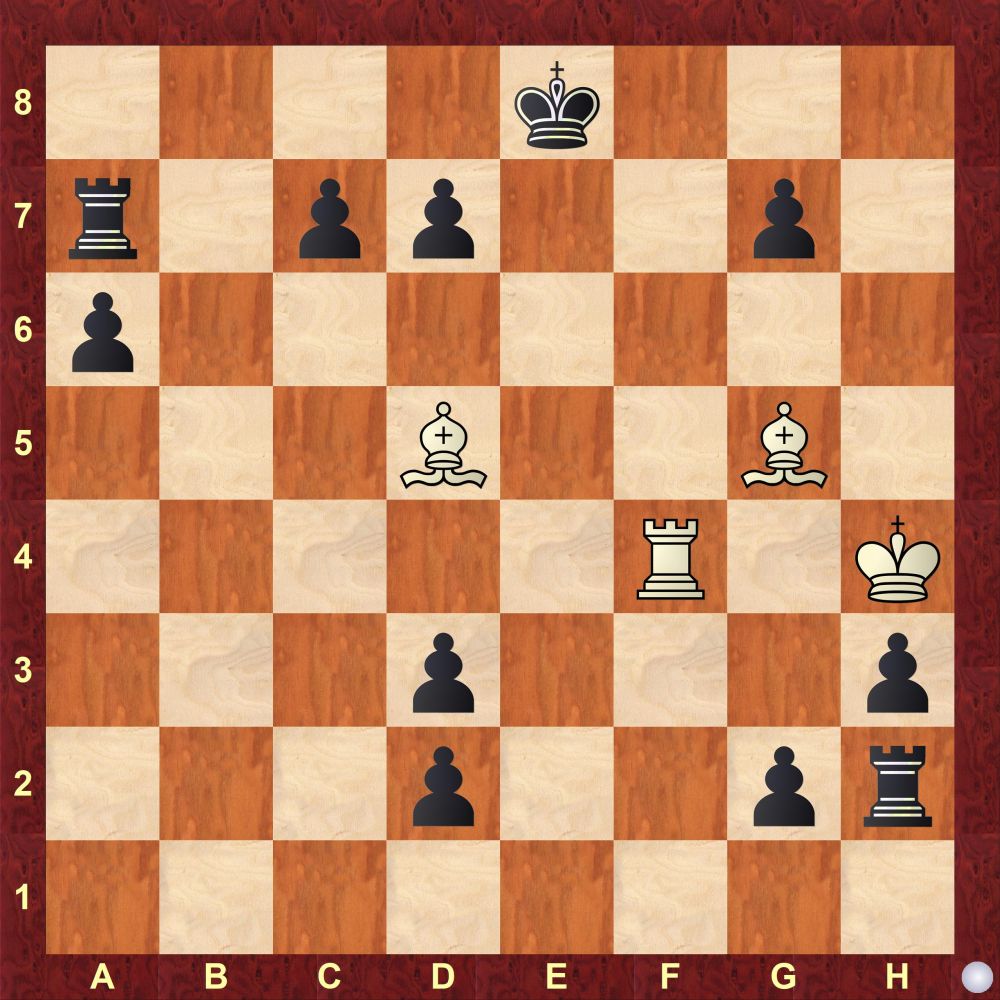
FEN: 4k3/r1pp2p1/p7/3B2B1/5R1K/3p3p/3p2pr/8 w - - 0 1
It requires imagination to solve a Kutzborski problem as this brilliant example illustrates. Imagine if there was no black pawn on g7 then?
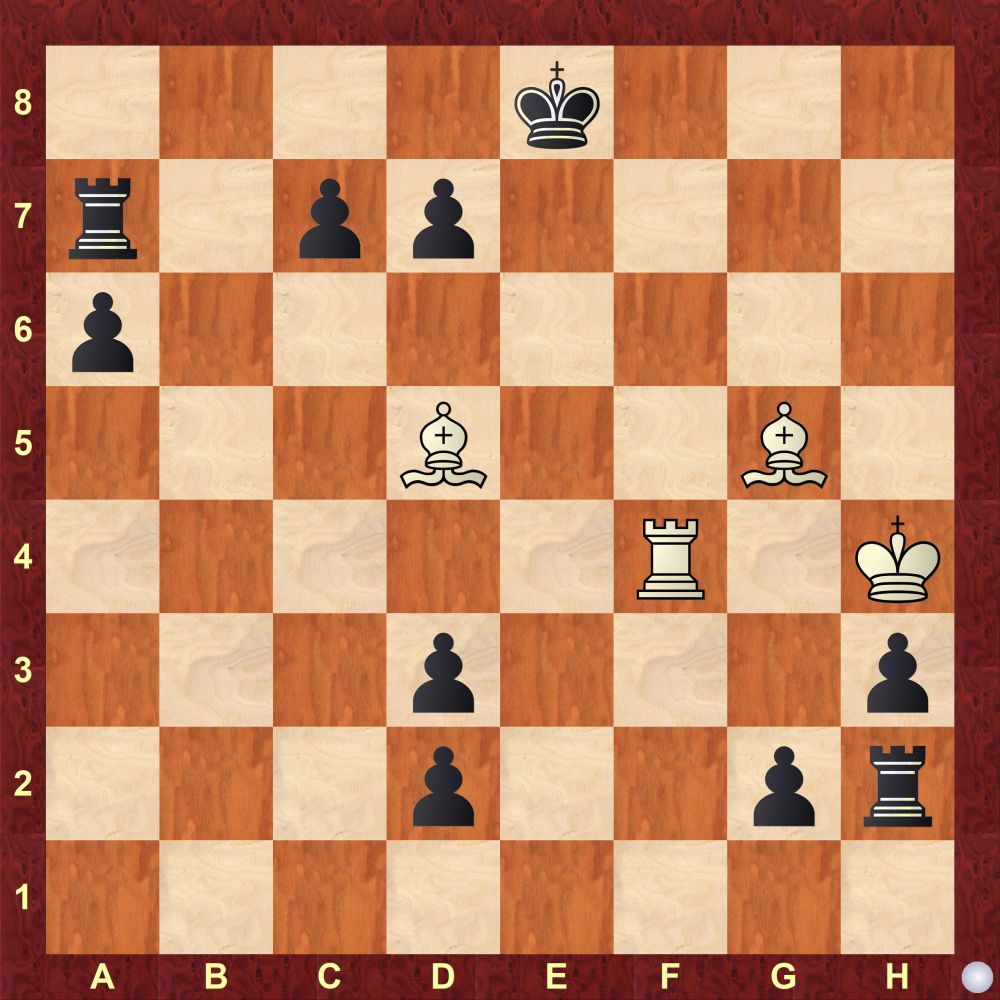
FEN: 4k3/r1pp4/p7/3B2B1/5R1K/3p3p/3p2pr/8 w - - 0 1
White could have immediately registered mate with 1.Re4+ Kf8 2.Bh6#, but with the bPg7 what does White do? Well, he prepares to realize just that!
First, 1.Rb4! threatening 2.Rb8#, the idea is to push the bRa7 to the last rank. The main-line now continues with 1...Ra8 2.Re4+ Kf8 3.Rf4+ Ke8 4.Bf7+ Kf8
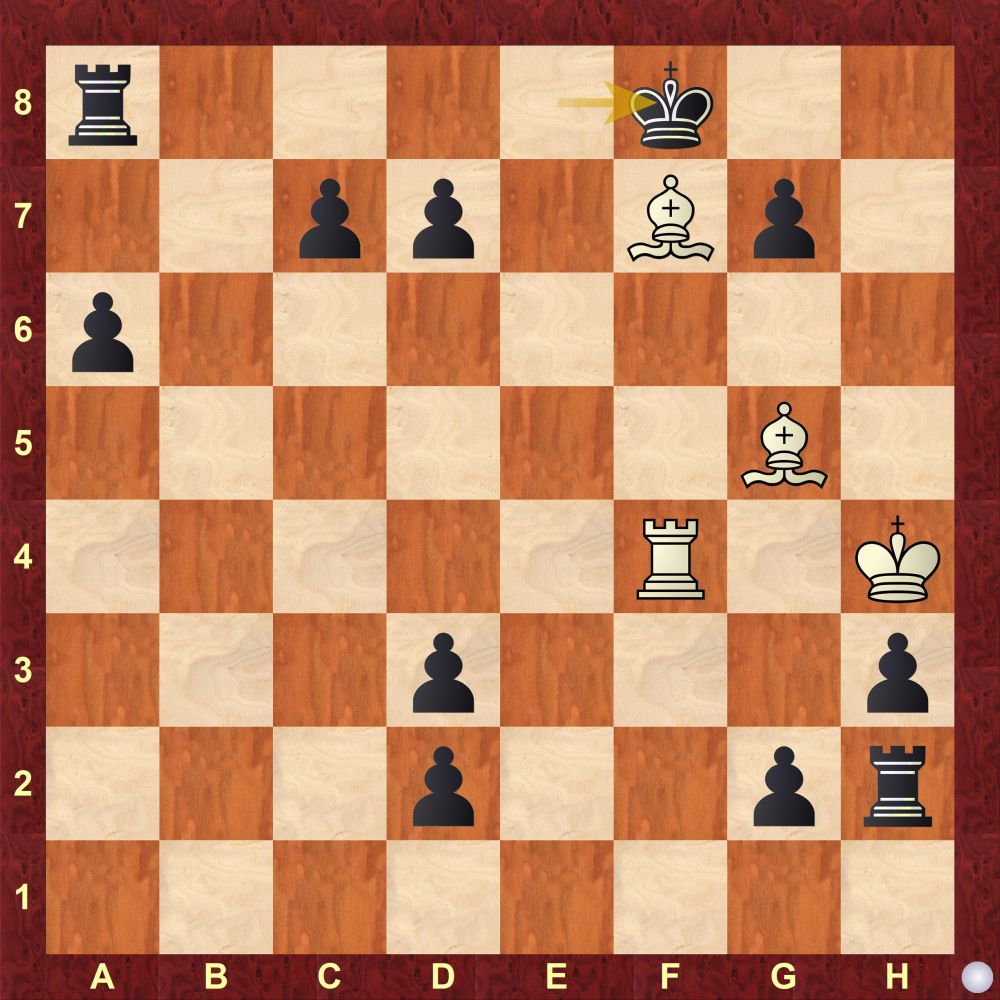
FEN: r4k2/2pp1Bp1/p7/6B1/5R1K/3p3p/3p2pr/8 w - - 0 5
5.Bb3+ Ke8 6.Bd1 (threat: 7.Bh5+) 6...g6 (And White successfully removes the bPg7) 7.Bb3 (8.Re4+ Kf8 9.Bh6#) 7...d5 8.Ba4+ c6 9.Bc6# and it is with this last move that the point behind 1.Rb4! becomes clear, the idea was to deprive the 7th rank of the black rook's defense. This kind of work in non-linear logic isn't uncommon in Kutzborski's rich oeuvre.
Problem 3
Dieter Kutzborski, Schach-Aktiv 2007, 1st prize
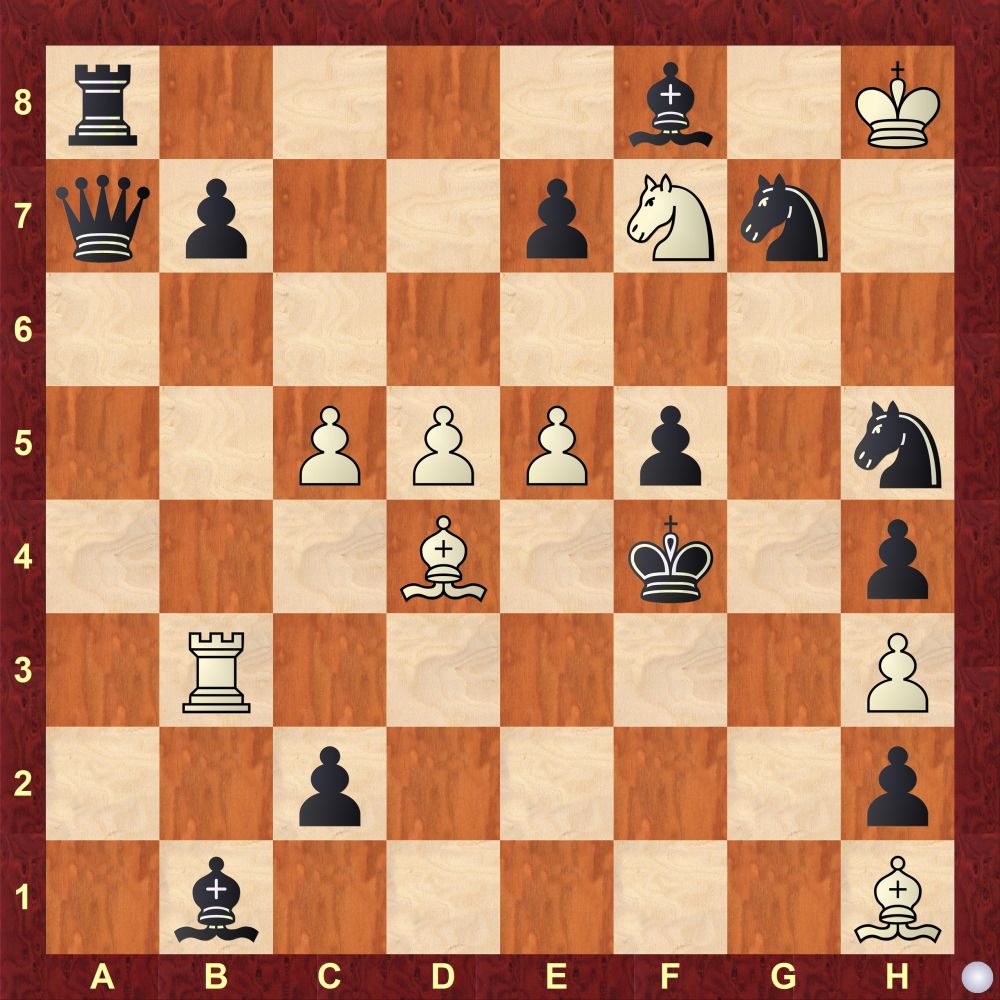
FEN: r4b1K/qp2pNn1/8/2PPPp1n/3B1k1p/1R5P/2p4p/1b5B w - - 0 1
This is another classy gem. One would like to try 1.Bb2? (threatening Bc1#) or 1.e6? (threatening Be5#) but these are refuted by 1...Qa3! & 1...Qa1! respectively. The trick lies in first driving the bQ out of the a-file and only then Bb2 followed by Bc1# will be the coup de grace!
First a few checks to bring the white rook to a better square 1. Be3+ Kg3 2. Bg1+ Kf4 3. Rf3+ Ke4 4. Rc3+ Kf4 5. Be3+ Kg3 6. Bd4+ Kf4
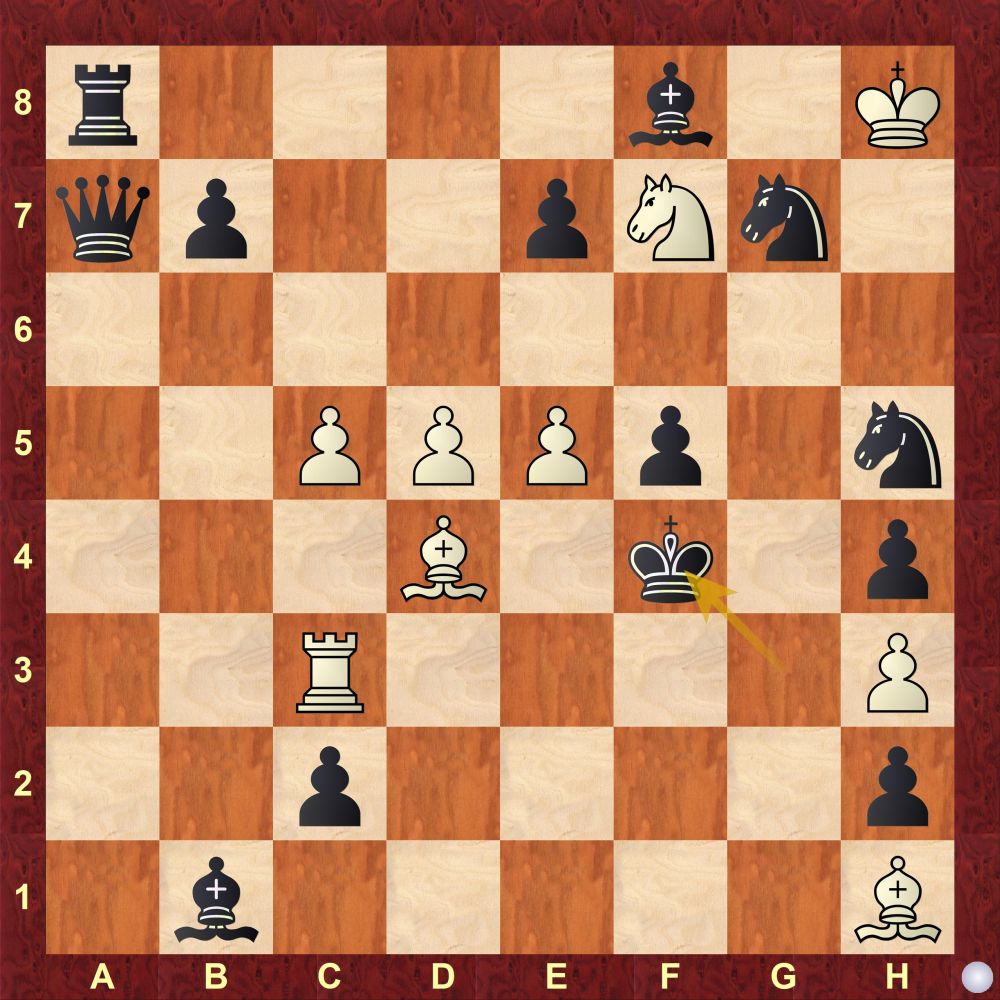
7. e6 [Threatening Be5#] 7...Qb8 is the only move as Qa1 is meaningless now; next, the white rook prepares again to return to its initial square: 8. Be3+ Kg3 9. Bg1+ Kf4 10. Rf3+ Ke4 11. Rb3+ Kf4 12. Be3+ Kg3 13. Bd4+ Kf4 and finally now 14. Bb2 works, there is no defense against 15. B(x)c1#
What a spectacle!
Problem 4
Dieter Kutzborski & Hans Peter Rehm, Schach-Aktiv 1994, 1st Prize
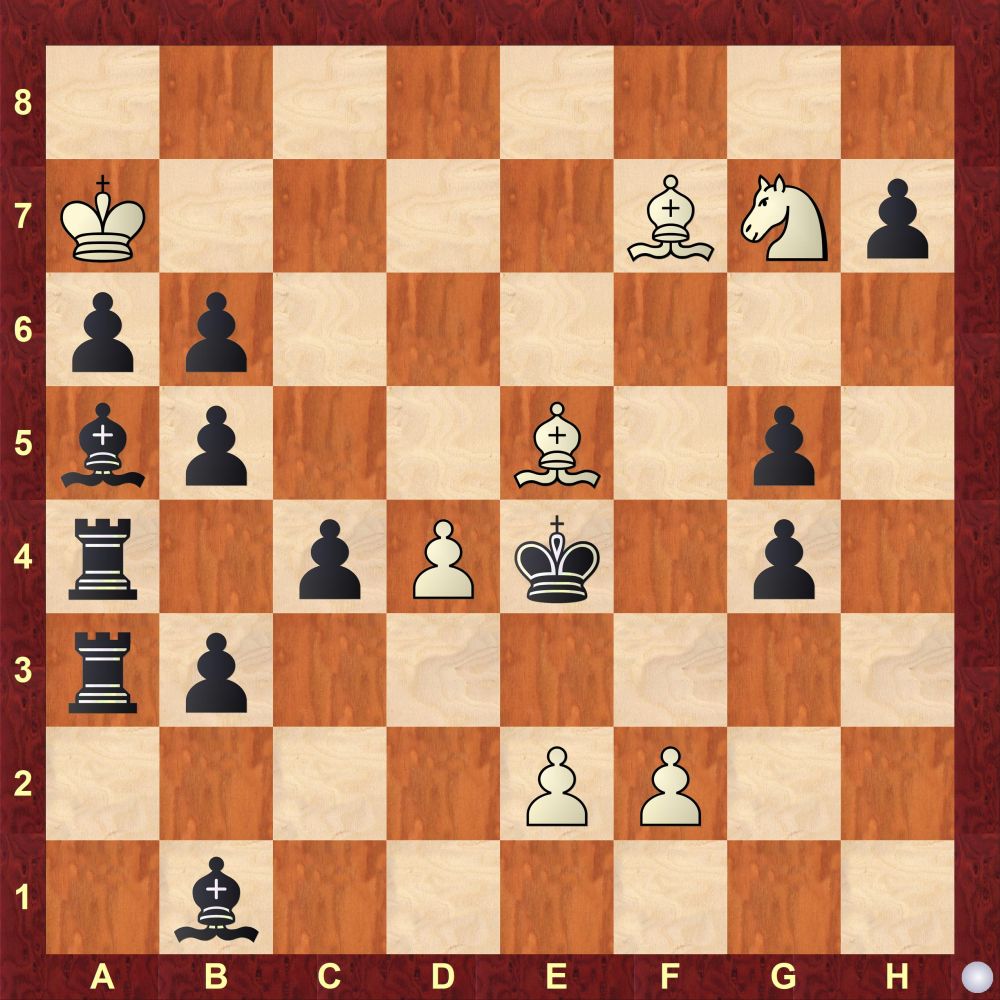
FEN: 8/K4BNp/pp6/bp2B1p1/r1pPk1p1/rp6/4PP2/1b6
Kutzborski is remembered to be a kind-hearted gentleman among his fellow colleagues and kin.

This is one of his successful co-productions with Hans Peter Rehm, another exemplary German composer of modern times. When you work through the solution of this problem, do take notice of the black pawn on c4 - it is the proverbial Achilles' heel in Black's structure. 1. Ne8 (Threatens 2.Nd6# and forces Bb4, an important interference) 1...Bb4 2. Nf6+ Kf5 3. Nh5 (Threat: 4.Ng3#) 3...b2 4. Ng7+ Ke4 5. Be8 (Threat: 6.Bc6#) 5...Kd5 6. Kb7 c3 7. Bf7+ Ke4 8. Nh5 c2 and finally 9. Nf6+ Kf5 10. e4# - a beautiful pawn-mate.
The world of chess composition is truly bereaved at the loss of such a great genius. This article is a humble tribute to the late star and is written with the sincere hope that it will make him known to a more general audience.
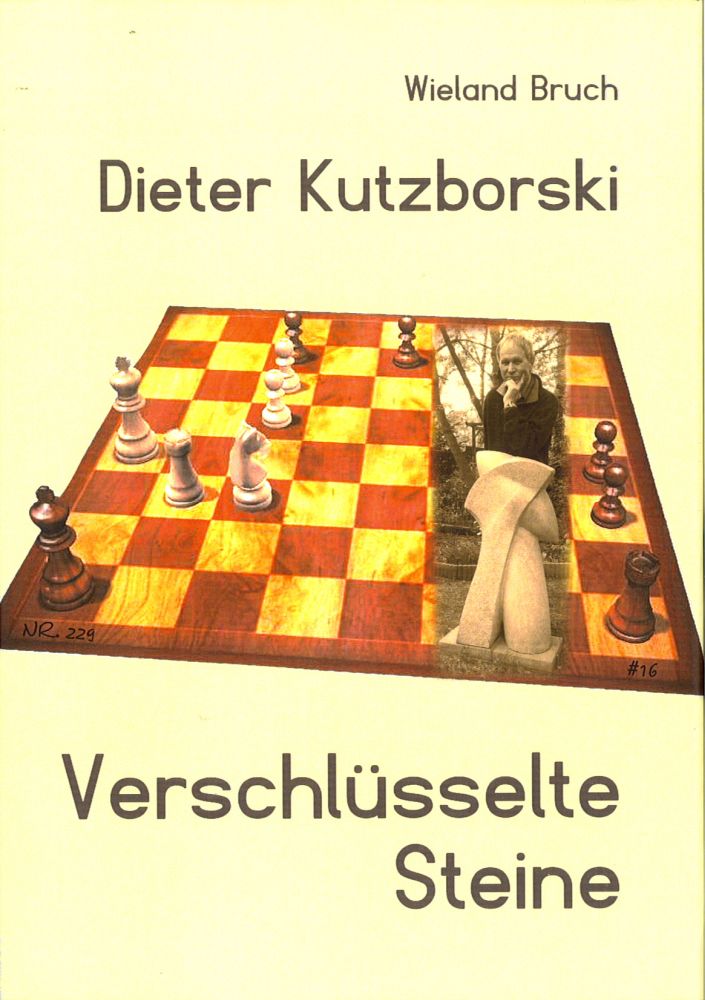
There was very little biographical information available online on Kutzborski. I am grateful to the German study composer Martin Minski who helped me a lot in the compilation of this article. Hopefully I have done a decent job of it. But more can be read about him in the German book "Dieter Kutzborski - Verschlüsselte Steine" by Wieland Bruch.
About the author

My name is Satanick Mukhuty. I am 26 years old and hold a bachelors degree in mathematics. Chess composition is the most serious passion of mine and I intend to pursue it rest of the life in my own humble capacity. Chess problems aside, I love good music, cinema, poetry and last but not the least, I love cats and am fostering three kittens along with their mom at the moment.
If you enjoyed Satanick's article, feel free to like his Facebook page - The Problemist Diary
















































